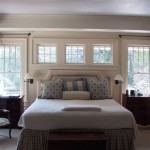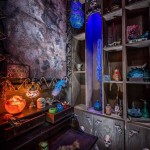Companies That Decorate Hotel Rooms: A Guide to Professional Hospitality Design
The design and decoration of hotel rooms play a crucial role in shaping guest experiences and establishing brand identity. These spaces are more than just places to sleep; they represent temporary homes, relaxation zones, and sometimes even workspaces for travelers. As such, hotel owners and managers invest significantly in professional design services to ensure their rooms are not only aesthetically pleasing but also functional, comfortable, and reflective of their brand’s unique characteristics. This article delves into the world of companies specializing in hotel room decoration, exploring their services, the design considerations they address, and examples of notable players in the industry.
The process of decorating a hotel room extends beyond simply selecting furniture and artwork. It encompasses a complex interplay of factors including interior architecture, lighting design, color psychology, material selection, and compliance with industry standards and regulations. Professional hotel room decoration companies bring expertise in all these areas, offering comprehensive solutions from initial concept development to final installation and styling.
Understanding the Scope of Hotel Room Decoration Services
Hotel room decoration companies typically offer a wide range of services tailored to meet the specific needs of their clients. These services often include, but are not limited to:
Conceptual Design and Planning: This phase involves understanding the client's vision, target audience, and budget. Designers develop initial concepts, mood boards, and preliminary floor plans to visualize the proposed design. They consider the hotel's overall brand, its location, and its target demographic to create a cohesive and appealing aesthetic. This stage includes detailed space planning to optimize functionality and flow within the room.
Material and Furniture Selection: Based on the approved concept, designers select appropriate materials, furniture, fixtures, and equipment (FF&E). This involves sourcing items that are both aesthetically pleasing and durable enough to withstand the rigors of daily hotel use. Considerations include fabric durability, stain resistance, ease of maintenance, and compliance with fire safety regulations. Designers often work with a network of suppliers and manufacturers to ensure access to a wide range of options and competitive pricing.
Lighting Design: Lighting is a critical element in hotel room design, affecting both the ambiance and the functionality of the space. Designers create lighting plans that incorporate ambient, task, and accent lighting to create a welcoming and versatile environment. They consider the use of natural light, artificial light sources, and lighting controls to optimize energy efficiency and guest comfort.
Color Palette and Finishes: Color plays a significant role in creating the desired mood and atmosphere in a hotel room. Designers carefully select color palettes that complement the overall design concept and evoke specific emotions. They also choose appropriate finishes for walls, floors, and ceilings, considering factors such as durability, acoustics, and ease of maintenance.
Custom Design and Fabrication: In some cases, standard furniture and fixtures may not meet the specific needs or aesthetic requirements of a hotel project. Hotel room decoration companies often offer custom design and fabrication services to create unique pieces that perfectly complement the overall design. This can include custom-built headboards, desks, seating areas, and artwork.
Project Management and Installation: Once the design is finalized and materials are selected, the hotel room decoration company manages the entire installation process. This includes coordinating with contractors, overseeing the delivery and installation of furniture and fixtures, and ensuring that the project is completed on time and within budget. Project managers serve as the primary point of contact for the client, providing regular updates and addressing any issues that may arise.
Styling and Accessorizing: The final stage of hotel room decoration involves styling and accessorizing the space to create a polished and inviting atmosphere. This includes selecting artwork, textiles, decorative objects, and amenities that enhance the overall design and create a memorable guest experience. Designers pay attention to detail, ensuring that every element contributes to the overall aesthetic and brand identity of the hotel.
Renovations and Refurbishments: In addition to new construction projects, hotel room decoration companies also specialize in renovations and refurbishments. This involves updating existing hotel rooms to improve their aesthetic appeal, functionality, and comfort. Renovation projects may include replacing outdated furniture, updating flooring and wall coverings, and improving lighting and electrical systems.
Key Considerations in Hotel Room Design
Designing a successful hotel room requires careful consideration of various factors that impact guest satisfaction and operational efficiency. These considerations include:
Functionality and Ergonomics: Hotel rooms should be designed to be functional and comfortable for guests. This involves providing adequate space for sleeping, working, and relaxing. Furniture should be ergonomically designed to support good posture and reduce strain. Ample storage space should be provided for luggage and personal belongings. Designers must consider the needs of different types of travelers, including business travelers, families, and leisure travelers.
Durability and Maintenance: Hotel rooms are subject to heavy use and wear and tear. Therefore, it is essential to select durable materials and finishes that can withstand the rigors of daily use. Fabrics should be stain-resistant and easy to clean. Furniture should be constructed from high-quality materials that can withstand repeated use. Designers should also consider the ease of maintenance when selecting materials and finishes.
Acoustics and Privacy: Noise can be a major source of dissatisfaction for hotel guests. Designers should consider the acoustics of the room and implement measures to minimize noise transmission from adjacent rooms and hallways. This may involve using soundproofing materials in walls, floors, and ceilings. Privacy is also an important consideration. Window coverings should provide adequate privacy, and doors should be properly sealed to prevent noise from entering the room.
Accessibility and Inclusivity: Hotel rooms should be designed to be accessible to guests with disabilities. This involves complying with accessibility standards such as the Americans with Disabilities Act (ADA). Accessible rooms should include features such as wider doorways, grab bars in bathrooms, and lowered countertops. Designers should also consider the needs of guests with other disabilities, such as visual or hearing impairments.
Technology Integration: Modern hotel rooms are increasingly incorporating technology to enhance the guest experience. This may include features such as high-speed internet access, smart TVs, and integrated control systems for lighting, temperature, and entertainment. Designers should consider how technology can be seamlessly integrated into the room design to improve functionality and convenience.
Sustainability and Environmental Impact: Hotels are increasingly focused on sustainability and reducing their environmental impact. Designers can contribute to these efforts by selecting sustainable materials, incorporating energy-efficient lighting and appliances, and designing for water conservation. Using recycled materials and sourcing products from local suppliers can also help to reduce the environmental footprint of the hotel.
Compliance with Regulations: Hotel rooms must comply with various building codes and regulations, including fire safety regulations, electrical codes, and plumbing codes. Designers must be knowledgeable about these regulations and ensure that their designs meet all applicable requirements. Fire safety is a particularly important consideration, and designers must select materials and finishes that are fire-resistant and compliant with fire safety standards.
Notable Companies in the Hotel Room Decoration Industry
Several companies specialize in hotel room decoration, each with its own unique style and approach. Here are a few notable examples:
Wilson Associates: A global design firm with extensive experience in the hospitality sector, Wilson Associates offers comprehensive design services for hotels, resorts, and casinos. They are known for their innovative and luxurious designs, which often incorporate cutting-edge technology and sustainable practices. Their projects span across the globe, showcasing a diverse range of design aesthetics.
Hirsch Bedner Associates (HBA): Another leading global design firm, HBA specializes in creating distinctive and memorable hotel interiors. They have a reputation for their attention to detail and their ability to create spaces that are both aesthetically pleasing and functional. HBA works with a wide range of hotel brands, from luxury properties to boutique hotels.
Gensler: A large and diversified design firm, Gensler also has a strong presence in the hospitality sector. They offer a wide range of design services, including interior design, architecture, and branding. Gensler is known for its data-driven approach to design, using research and analysis to create spaces that meet the specific needs of their clients.
Rockwell Group: Founded by David Rockwell, Rockwell Group is an architecture and design firm known for its innovative and theatrical approach to design. They have worked on numerous hotel projects, creating spaces that are both visually stunning and engaging. Rockwell Group often incorporates elements of storytelling and performance into their designs.
Champalimaud Design: This firm focuses on luxury hospitality design, known for its refined and elegant aesthetic. They often blend classic and contemporary elements to create sophisticated and timeless interiors. Champalimaud Design emphasizes the use of high-quality materials and craftsmanship in their projects.
The selection of a hotel room decoration company depends on various factors including the project scope, budget, design preferences, and the hotel's brand identity. It is crucial for hotel owners and managers to thoroughly research and evaluate potential partners to ensure a successful and satisfying outcome. Conducting site visits, reviewing portfolios, and obtaining references are essential steps in the selection process.
The design and decoration of hotel rooms is a complex and multifaceted process that requires expertise in interior design, architecture, and project management. By partnering with a professional hotel room decoration company, hotel owners and managers can create spaces that are both aesthetically pleasing and functional, enhancing the guest experience and strengthening their brand identity.

Hotel Room Decoration Service Uberoom

Hotel Room Decoration Service Uberoom

Hotel Room Decoration Service Uberoom

Las Vegas Hotel Room Decor Service This Magic Moment

Hotel Room Decoration Service Uberoom

Las Vegas Birthday Hotel Decoration Service Photos This Magic Moment

Hotel Room Decoration Proposal Package This Magic Moment

Las Vegas Birthday Hotel Decoration Service Photos This Magic Moment

Surety Hotel Launches Four Holiday Rooms Designed By Local Designers

How To Decorate A Hotel Room Peninsula
Related Posts







